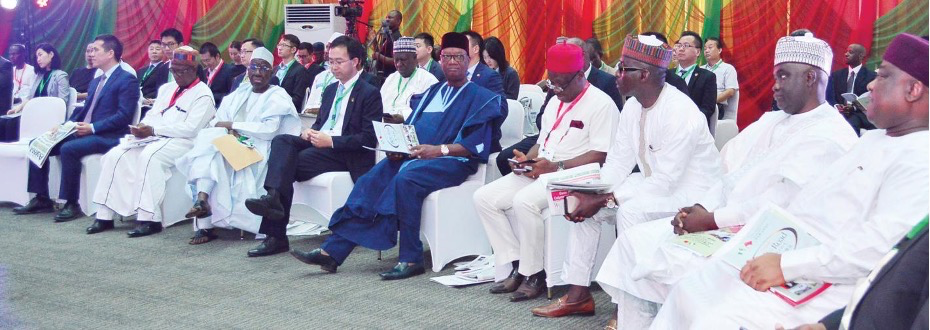

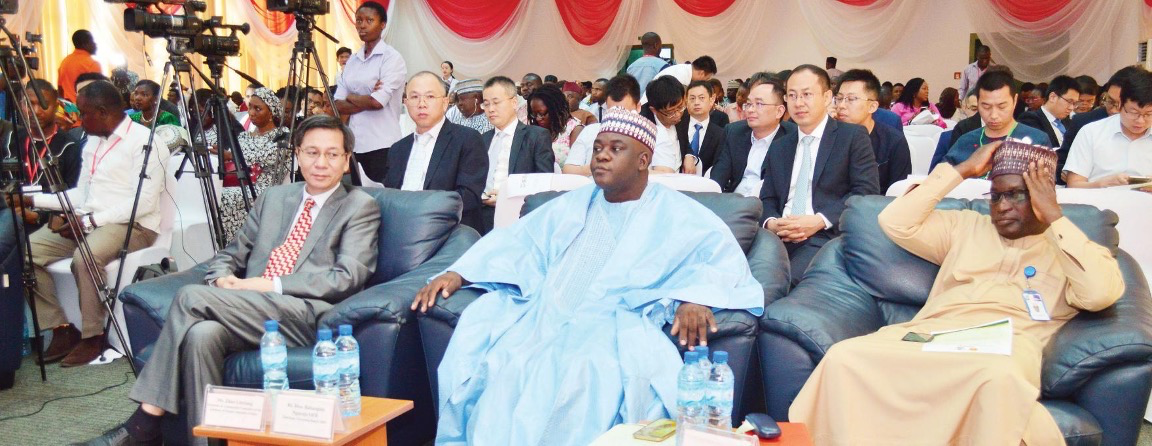
China footprint on infrastructural development in Africa cannot be over emphasis, as there is no nation that can stand the whopping dollars spent by China in developing African. In this report, Raphael Oni and Tunde Oguntola examines China's growing role in the finance of infrastructure in Sub-Saharan Africa, a trend reflects a much more positive economic and political environment in the continent. The Chinese Belt and Road Initiative which is a driver of the win-win cooperation is really yielding positive outcomes in Africa.
If the history of China-Africa relations is longstanding, they have been mainly political and not necessarily economic. In the last eight years or so, though, China's economic ties with Africa have ballooned. First of all, China has become the most important trading partner for many African countries. The rather unbalanced nature of Africa's trade flows with China is well documented in the literature, but this is much less the case for the other major aspect in China- Africa economic relations, namely investment.
Investment is, indeed, at the heart of Africa's needs. It is the continent with the fastest-growing population but receives less foreign direct investment (FDI) than any other emerging region, except for Central- Asian transition economies. In other words, if we were to calculate inward FDI per capita, Africa would indeed be the region of the world with the least inflows and, given their population trends and the current level of development, clearly with the largest needs.
In recent years China has to large-scale finance infrastructure projects, with a particular focus on roads, hydropower generation and railways. More than 35 African countries are engaging with China on infrastructure finance deals, with the biggest recipients being Nigeria, Angola, Sudan, and Ethiopia. The finance is channeled primarily through the China Export-Import (Ex-Im) Bank on terms that are marginally concessional, though significantly less so than those associated with official development assistance (ODA). A large share has gone to countries that are not beneficiaries of recent debt relief initiatives. In some cases, infrastructure finance is packaged with natural resource development, making use of a mechanism known as the "Angola mode." Chinese finance is on a scale large enough to make a material contribution toward meeting Africa's vast infrastructure needs. As such, it offers an important development opportunity for the region.
A Chinese proverb says, "If you want to get rich, build a road first." This is a fair way of representing China's years of economic development. Basically, if a nation invests in infrastructure by building roads and railroads it, in turn, leads to GDP growth. Fortunately, as a "rich" nation, China is able to offer help to other African countries.
Consequently, this new trend reflects a much more positive economic and political environment in Sub-Saharan Africa. The real GDP growth in the region has been sustained over the years and has benefited from an improved investment climate. The rise of the Chinese and Indian economies has fueled global demand for petroleum and other commodities. Africa is richly endowed with these and faces a historic opportunity to harness its natural resources and invest the proceeds to broaden its economic base for supporting economic growth and poverty reduction. In this context, south-south cooperation provides a channel through which the benefits of economic development in Asia and the Middle East can be transferred to the African continent, through a parallel deepening of trade and investment relations.
According to China Customs, the China and Nigeria Bilateral Trade Statistics, in the year 2016 was $10.62 billion, in 2017 it was $13.78 billion while in 2018 it was $15.27 billion.
However, despite the importance of Chinese finance for African infrastructure, relatively little is known about its value. Apparently, China and Africa have a long history of political and economic ties, which have greatly intensified in recent years. Both bilateral trade and Chinese foreign direct investment (FDI) in Africa grew about fourfold between 2001 and 2019. This was accompanied by a major influx of Chinese enterprises and workers into the region. The natural resource sector, principally petroleum and to a lesser extent mineral, has been the major focus for both Chinese FDI to Africa and African exports to China.
Two Chinese banks - Export-Import Bank of China and the China Development Bank - have committed in loans about $1.902bn into railway and deep seaport projects in Nigeria.
The Commercial Consul, Consulate General of the People's Republic of China in Lagos, Mr Liu Junsheng, made this disclosure during a press briefing recently on China's second Belt and Road Forum for International Cooperation, held in Beijing in April.
According to Junsheng, the Export - Import Bank of China provided
$1.267bn dollars of concessional loans for the Lagos-Ibadan section of the Nigerian Railway Modernisation Project as well as the extension to Lagos Port Complex at Apapa.
He explained that the Nigerian Railway Modernisation Project Addendum No.2 Lagos-Ibadan section was signed with a contract sum of $1.488bn, and Addendum No.2A for the extension to the Lagos port complex at Apapa with a contract sum of $94.07m, totalling $1.581bn.
He said, "The Export-Import Bank of China provided $1.267bn of the concessional loans accounting for 80.14 percent of the total contract sum of Addendum No.2 and 2A; and the Nigerian Federal Government provides counterpart funds of $314m, accounting for 19.86 percent."
President Muhammadu Buhari said Nigeria has gained from China the execution of infrastructure projects worth $5bn across the country. Buhari said under the partnership with China through the Forum on China-Africa Cooperation, the projects had been executed in the last three years of his administration.
A statement by the Senior Special Assistant to the President on Media and Publicity, Mr. Garba Shehu, quoted Buhari as saying this in Beijing at the FOCAC Round Table meeting, attended by African leaders and Chinese President Xi Jinping.
President Buhari dismissed insinuations that the Chinese loans to developing countries could constitute a debt trap. He insisted that Nigeria would be able to repay the loans.
According to him, these vital infrastructure projects synchronise perfectly with our Economic Recovery and Growth Plan.
"Some of the debts incurred are self-liquidating. Our country is able to repay loans as and when due in keeping with our policy of fiscal prudence and sound housekeeping."
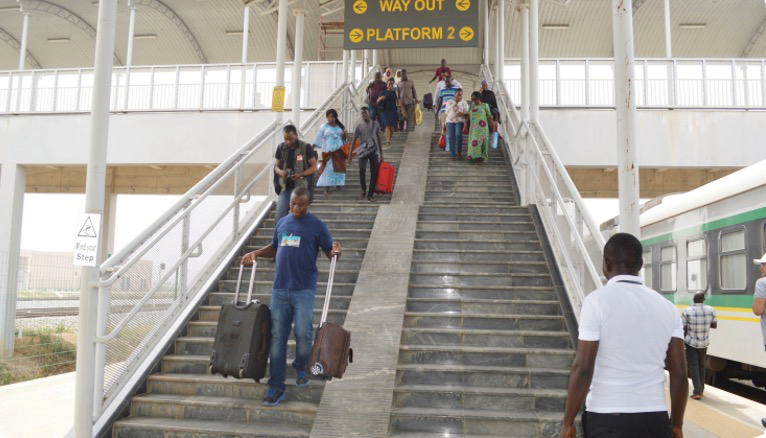
This is even as China offers Nigeria and other countries $60b for infrastructure projects. The funding will be provided as government assistance and as investment and financing by financial institutions and companies, Xi said in a keynote speech at the opening ceremony of the 2018 Beijing Summit of the Forum on China-Africa Cooperation.
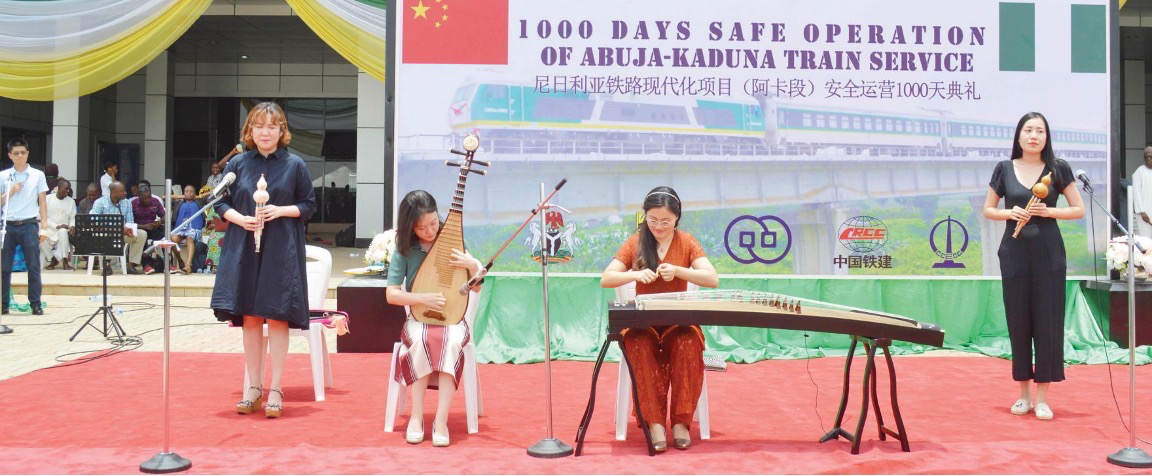
China will spend $60 billion to finance projects in Africa, President Xi Jinping announced yesterday.
The funding will be provided as government assistance and as investment and financing by financial institutions and companies, Xi said in a keynote speech at the opening ceremony of the 2018 Beijing Summit of the Forum on China-Africa Cooperation.
He also said China would exempt certain African countries from outstanding debts incurred in the form of interest-free Chinese government loans due by the end of 2018.
The exemption, he said, will be granted to Africa's least developed countries, heavily indebted and poor countries, landlocked and small island developing countries that have diplomatic relations with China.
He added that China would implement eight major initiatives with African countries in the next three years.
This will cover fields such as industrial promotion, infrastructure connectivity, trade facilitation, and green development.
He warned however that Chinese funds were not for "vanity projects" in Africa but are to build infrastructure that can remove development bottlenecks. The Chinese President told Chinese firms to respect local people and the environment.
Speaking at the business forum before the start of a triennial China Africa summit, he said "China does not interfere in Africa's internal affairs and does not impose its own will on Africa.
"What we value is the sharing of development experience and the support we can offer to Africa's national rejuvenation and prosperity," Xi said.
"China's cooperation with Africa is clearly targeted at the major bottlenecks to development. Resources for our cooperation are not to be spent on any vanity projects but in places where they count the most," he said.
Let's face it the growth in commercial activity between China and Africa has been accompanied by a significant expansion of Chinese official economic assistance to the region, which is focused mainly on infrastructure and typically channeled through the China Ex-Im Bank.
African leadership has typically welcomed China's fresh approach to development assistance, which eschews any interference in domestic affairs, emphasizes partnership and solidarity among developing nations, and offers an alternative development model based on a more central role for the state.
However, a number of civil society commentators have expressed concerns about the social and environmental standards applied. The China Ex-Im Bank has its own environmental standards, and its policy is to follow the environmental regulations of the host country.
Sectoral Distribution of Chinese Infrastructure Finance In terms of sectoral distribution, a large share of the Chinese finance is allocated to general, multisector infrastructure projects, within the framework of broad bilateral cooperation agreements that allow resources to be allocated in accordance with government priorities.
However, it is clear that the two largest beneficiary sectors are power and transport. In fact, China is the only one of the three blocs that have seen continuous net positive flow into Africa in each of the past three years.

In the power sector, China's activities have focused on the construction of large hydropower schemes. There have also been some activities in thermal generation and transmission but on a much smaller scale.
China has made a major comeback in the rail sector, with huge financing commitments. They include rehabilitation of more than 1,350 kilometers of existing railway lines and the construction of more than 1,600 kilometers of the new railroad. To put this in perspective, the entire African railroad network amounts to around 50,000 kilometers. The largest deals have been in Nigeria, Gabon and Mauritania.
A few months ago, Nigeria's development strides received a major boost yesterday in Abuja as China recommitted itself to working with the federal government to transform the country's security, social and economic landscapes.
The fresh assurance from the Chinese government came from the Asian nation's Ambassador to Nigeria, Dr Zhou Pingjian. He said that the government of the People's Republic of China is prepared to collaborate with Nigeria to step up connectivity, expand the integration of development, deepen people-to- people understanding, and enhance security cooperation.
Such collaboration, according to the envoy, would produce more tangible Belt and Road Initiative (BRI) cooperation benefits to both countries and their citizens.
In his remarks at the Abuja Beijing Consensus (ABC) Roundtable Belt and Road Initiative (BRI) in Abuja yesterday, Zhou said that as the largest developing country in the world, China values its strategic partnership with Nigeria, which is also the largest developing country in Africa.
Zhou said that the cordial relationship between China and Nigeria is at its best in history.
He disclosed that on October 1, this year, "we are going to celebrate the 70th anniversary of the founding of the People's Republic of China. On the same day, Nigeria will celebrate its 59th Independence Day. China and Nigeria have always been a community with a shared future."
The envoy said that in June, the coordinators' meeting of the Implementation of the Follow-up Actions of the Beijing Summit of the FOCAC will be held in Beijing to facilitate prompt and efficient implementation of the eight major initiatives.
Ambassador Zhou added that ‘‘we stand ready to work with Nigeria to step up connectivity, expand the integration of development, deepen people-to-people understanding and enhance security cooperation, so as to bring more tangible BRI cooperation benefits to our two countries and peoples.
"The first edition of the Abuja Beijing Consensus (ABC) roundtable under the theme ‘Belt and Road Initiative,' comes just at the right time. The second Belt and Road Forum for International Cooperation (BRF) was held in Beijing, with the presence of many Nigerian friends. Some of the speakers had the first-hand experience at the BRF.
Nigeria's former minister of Foreign Affairs, Ambassador Aminu Wali, described BRI as one of the most viable and robust strategies for international cooperation and addressing practical issues of connectivity within and across nations of the world.
Wali, who once served as Nigeria's Ambassador to the People's Republic of China, said that six years after it was announced at the National University in Kazakhstan by President Xi Jinping as a new strategy of international cooperation, BRI has promoted inclusion by harnessing achievements in science and technology to address developmental needs particularly in developing countries.
He said that Africa is at the epicenter of an emerging trend where resources are being utilized to fill the existential deficit of critical development needs such as transport, power and telecommunications infrastructure. Wali stated that Nigeria as one of Africa's largest emerging markets with a huge potential for further economic expansion should be at the forefront of Africa's greater engagement with BRI framework to fast-track its national development and ensure its place as the continent's foremost economy and investment destination.
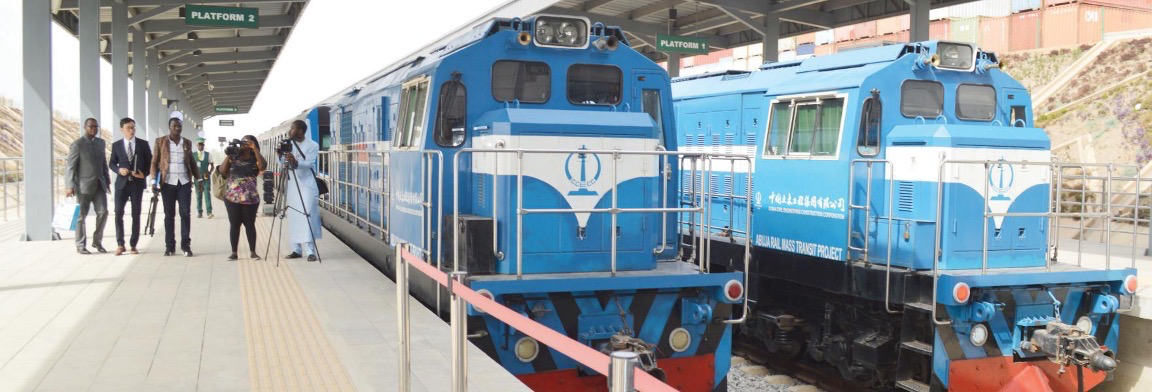
He continued: "Since the action plan of BRI was rolled out, key infrastructure projects have sprung up in Africa driven primarily by the BRI's concessional funding model, making it easier for more low- income nations to participate in the Initiative without overburdening their national treasuries while considerably accelerating their developmental agendas for the betterment of their people.
"Through this financial model Chinese companies have embarked on numerous infrastructural projects the likes of Addis Ababa- Djibouti railway in Ethiopia which is the first electrified railway corridor in Africa Mombasa-Nairobi railway in Kenya, Abuja-Kaduna railway in Nigeria and many others including the Lagos-Ibadan-Kano railway now under construction.
"In the maritime sector, projects such as the port of Bagamoyo in Tanzania, Lekki Deep Sea Port in Nigeria as well as a host of others have been successfully completed with others under construction by various Chinese firms. These ports have all been strategically sited to take advantage of existing road infrastructure and in other cases industrial parks thereby significantly impacting on the economic development of the Coastal areas of Africa.
‘As part of BRI's strategy to Africa's economic recovery and sustainable growth, a number of power plants have been built across the continent as well as the construction of industrial parks. As at the end of 2016, China under BRI has set up 20 industrial parks in 15 African countries, including Nigeria, with accumulated investments of $5.38 billion, attracting more than 450 enterprises with an accumulated value output of $19.35 billion that has contributed $1.62 billion to the revenues of the host countries in taxes and fees," he said.
In his speech, the chairman of LEADERSHIP Newspapers Group, Mr Sam Nda-Isaiah, had kind words for former and current Chinese leaders for making the country a world economic power.
Nda Isaiah, who is also the chairman of the Abuja Beijing Consensus (ABC) Roundtable, said that it is a private sector-led think-tank created by forward-looking Nigerians and Chinese living in both countries.
According to him, the higher aim of the group is to be the bridge builder that is engaged in deepening China-Nigeria relationship, between their peoples in the areas of governance, business, politics, security, education, among others.
While disclosing that ABC will operate chiefly at the policy level, taking the full advantages created by the two countries, he added that it will operate at the government-to-government level and at the decision-making level.

Nda-Isaiah, who stated that China is Asia's largest economy and the world's largest country, added that it is also the second-largest economy in the world and the largest in terms of purchasing power parity (PPP). Nigeria, he added, is Africa's biggest economy, its most populated nation, and its intellectual hub.
He said that China and Nigeria consider themselves developing nations "and as Ambassador Pingjian never ceases to remind me, in 1978, China and Nigeria were at par in all material indices."
However, while Nigeria is making every effort to advance its Economic Recovery and Growth Plan (2017- 2020) the Belt Road Initiative (BRI) provides an unprecedented opportunity for China and Nigeria to synergize development strategies to step up connectivity, expand the integration of development, deepen people.
China's Belt and Road Initiative (BRI) is one of the most ambitious infrastructure investment efforts in history. It is a global development strategy adopted by the Chinese government involving infrastructure development and investments in 152 countries and international organizations in Asia, Europe, Africa, the Middle East, and the Americas. "Belt" refers to the overland routes for road and rail transportation, called "the Silk Road Economic Belt"; whereas "road" refers to the sea routes or the 21st Century Maritime Silk Road.
The Chinese government calls the initiative "a bid to enhance regional connectivity and embrace a brighter future". Some observers see it as a push for Chinese dominance in global affairs with a China-centered trading network. The project has a targeted completion date of 2049, which coincides with the 100th anniversary of the People's Republic of China.
Nigerian government has also expressed optimism to provide counterpart funding on all agreements reached with China for the provision of infrastructure that directly improves the livelihood of Nigerians, President Muhammadu Buhari said.
Receiving Yang Jiechi, Special Envoy of the President of China, Xi Jinping, at State House, President Buhari in a statement by his special adviser media, Femi Adesina expressed deep appreciation for China's sustained and genuine efforts to improve Nigeria's infrastructure development, especially in the sectors of road, railway, aviation, as well as power and water resources. "Now that we have a government in place (with the Ministers), we know the provision of infrastructure is very important. It (Infrastructure) provides job opportunities and economic sustainability which are very important for political stability," the President said.
On Lake Chad, the President emphasized the need for sustained support from China on the recharging of The Lake, noting that Nigeria and countries in the region have a lot to benefit from Chinese expertise and technology on inter- basin water transfer.
Ultimately, every stage in the infrastructure and capital project life cycle poses unique challenges and calls for distinct measures. Deloitte Infrastructure and Capital Projects (I&CP) teams leverage our global experience across all asset life cycle stages – in public, private and public-private partnerships (PPPs) environments – helping client organizations to enhance and manage complex investments more effectively.
The advent of China and other emerging players as important financiers represents an encouraging trend for Africa, given the magnitude of its infrastructure deficit.
With new actors and new modalities, there is a learning process ahead for borrowers and financiers, both new and old alike. Salient issues are the development of the national capacity to negotiate complex and innovative deals and to enforce appropriate environmental and social standards for project development. In sum, the key challenge for African governments is how to make the best strategic use of all external sources of infrastructure funding, including those of emerging financiers, to promote growth and reduce poverty on the continent.
